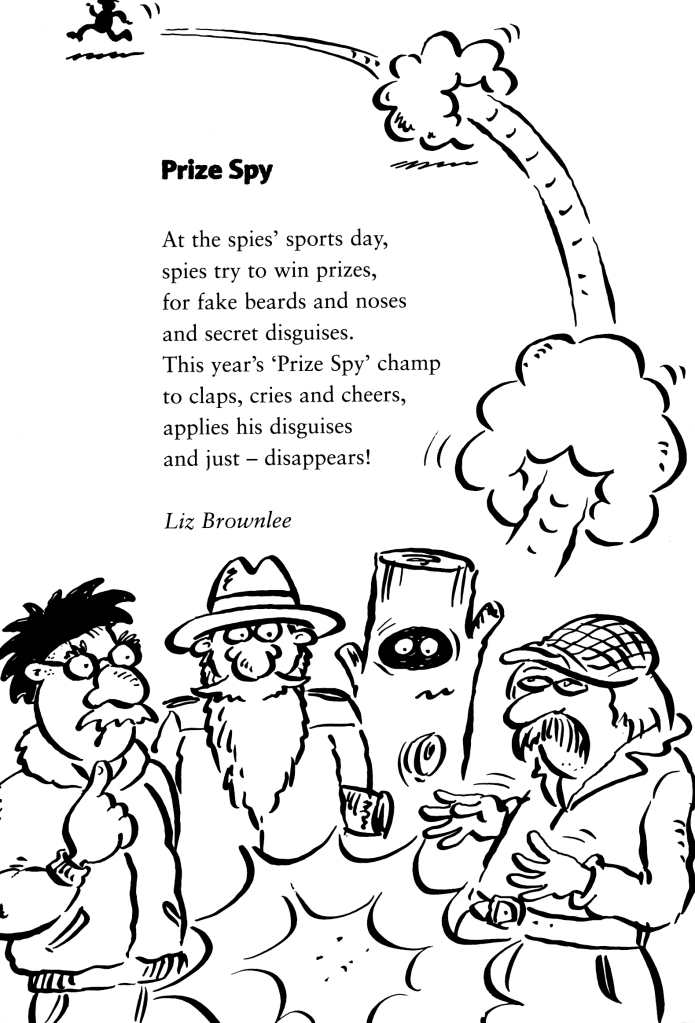This poem is from The Cowpat Throwing Contest, collected by Brian Moses, Wayland, illustrated by David Pattison.

This poem is from The Cowpat Throwing Contest, collected by Brian Moses, Wayland, illustrated by David Pattison.

This poem appears in Animal Magic, IRON Press.
Baby Turtle Lullaby
.
A warm, salty breeze
is blowing, small turtles,
asleep in your nests
under sand in the bay,
.
the touch of soft starlight,
the sound of the sea’s song,
is calling to wake you
and bear you away,
.
your destiny waits in
blue, boundless oceans,
so say your goodbyes
to the motionless land,
.
paddle as fast as
your flippers can follow
and leave just your
butterfly prints in the sand.
.
© Liz Brownlee
.
You can find this poem and another by me in The Sea’s Song, published by Oxford University Press: